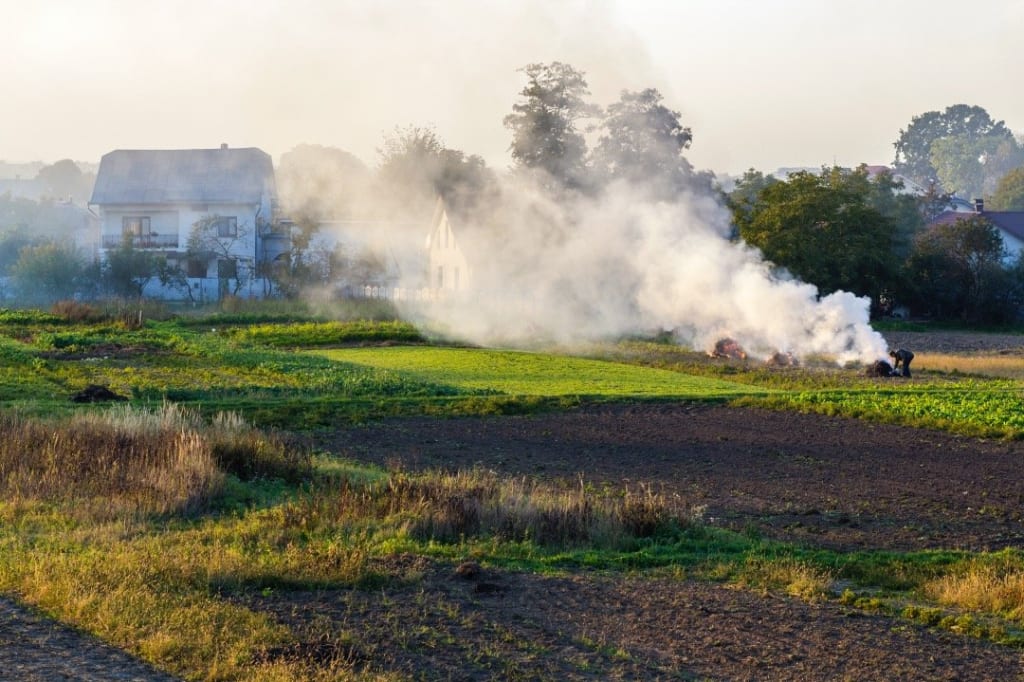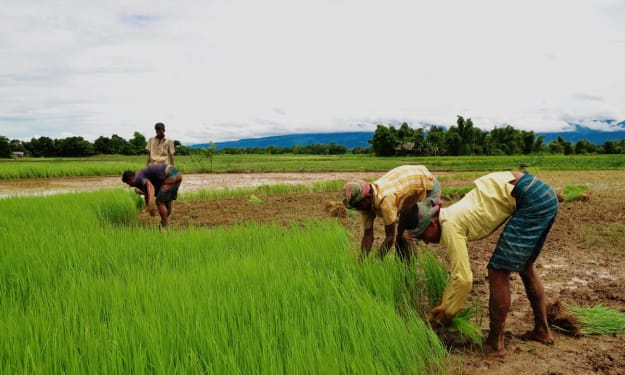FARMING AND AGRICULTURAL WASTE - ITS KINDS AND MANAGEMENT
Why is agricultural waste management critical?

Farming contains different complex processes from planting seeds to cultivating them and uses of machineries like tractors, which results in large amounts of hazardous waste and pollution. Agricultural waste is a huge problem if not correctly disposed of, as agricultural waste can have a negative impact on the environment. The chemicals used in farming and agriculture can cause pollution. For example, the pesticide can cause mass pollution levels in rivers and streams.
Polluted water can damage the ecosystem and can lead to the death of animals, and damage drinking water. When dealing with hazardous waste, farmers should follow the health and safety regulations, including the Control of Substances Hazardous to Health Regulations. In this article, we will discuss different kinds of agricultural waste, how to manage it?.
Different kinds of agricultural waste.
The agricultural industry produces many kinds of agricultural waste, all of which have their recycling or disposal methods. Some of these include:
Why is agricultural waste management critical?
Agriculture and animal farming also leave out wastes after they are harvested. Since agriculture is done on a large scale, the agricultural waste generated cannot be ignored, and proper care must be taken to decompose it through the farming waste management program. If the agrarian wastes are not disposed of properly, they can be harmful to the environment and human beings as they contain various chemicals, minute metal particles, pharmaceuticals, and pathogens. When fertilizers are applied to the crops, they absorb nutrients, and other materials are generally rendered harmless in the soil. The waste management program aims to protect the environment and living organisms by keeping manure and contaminated waters out of surface and groundwater. It should be ensured that the application of manure nutrients to cropland such that nutrients are available in the right proportion.
The immediate solution for agricultural waste management is compost. Vermiculture is biotechnology for converting waste into compost. Agricultural waste contains biodegradable hemicellulose and cellulose materials; upon decomposition, they give rich nutrients to plants. Cow Dung can be used as manure and is commonly available in rural areas as it is derived from livestock and is rich in nutrients and microorganisms.
ORGANIC FARMING CAN HELP IN WASTE MANAGEMENT
Organic farming makes the best use of crop residues, animal manure, green manure and off-farm organic waste to maintain soil productivity, supply plants with necessary nutrients, and control insects, weeds and other pests [9]. It is an agricultural waste management system in which all the required components are installed and managed to control and use by-products of agricultural production to sustain or enhance the quality of air, water, soil, plant, animal and energy resources.Additionally, Organic farming can be less expensive because of no use of pesticides or fertilizers and expensive machineries like tractors. However, some tractors are available at affordable rates in markets like Powertrac 434 tractors.
HOW FARMERS CAN CONTROL AGRICULTURAL WASTE
- Farmers should go with methods like organic farming, which results in less hazardous waste, and it can be economical too because, in this method, fewer machinery and chemicals are used. However, tractors are becoming essential in farming. Therefore, farmers should go with tractors like Powertrac 437 , which is effective and fuel-efficient too.
- Farmers should be able to organize waste management methods for traditional and recyclable materials.They can take help from government authorities related to it.
- Recycling where possible is one of the best ways to control waste management.
- Reduction via improving irrigation efficiency, developing cultivation strategies, minimizing chemical fertilizers, applying control and process monitoring schemes, investing in agricultural sectors, and increasing environmental awareness and education,
- Reuse in irrigation, fertilization, bio-energy production, pyrolysis, direct combustion, animal feed, and pollutant adsorption,
- Recycling through civil construction and composting approaches.
By using the above methods, farmers can manage agricultural waste easily and additionally; they can save lots of unnecessary expenses in agriculture by using organic fertilizers and less expensive machines such as Powertrac 439 tractor.
We hope you like this blog so kindly stay connected with us.
About the Creator
Aman Samadhiya
For all Indian farmers, a tractor is essential to perform agriculture activities. Now Massey Ferguson Tractor Price is fair for all marginal farmers. All the details about Massey Ferguson latest model, Massey Ferguson Tractor Price.






Comments
There are no comments for this story
Be the first to respond and start the conversation.